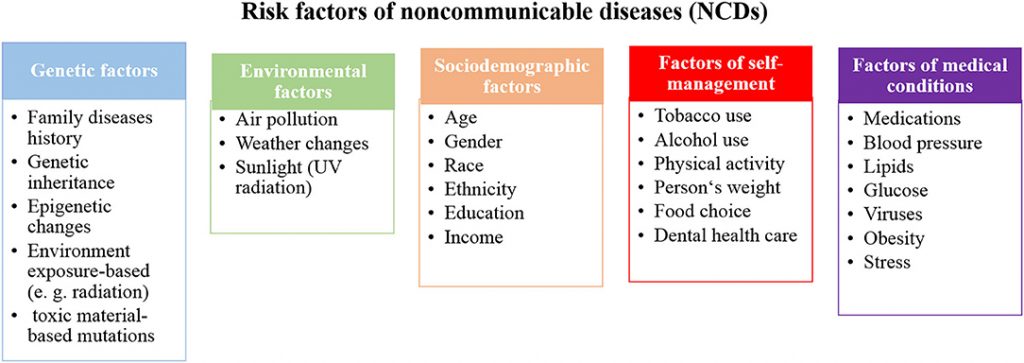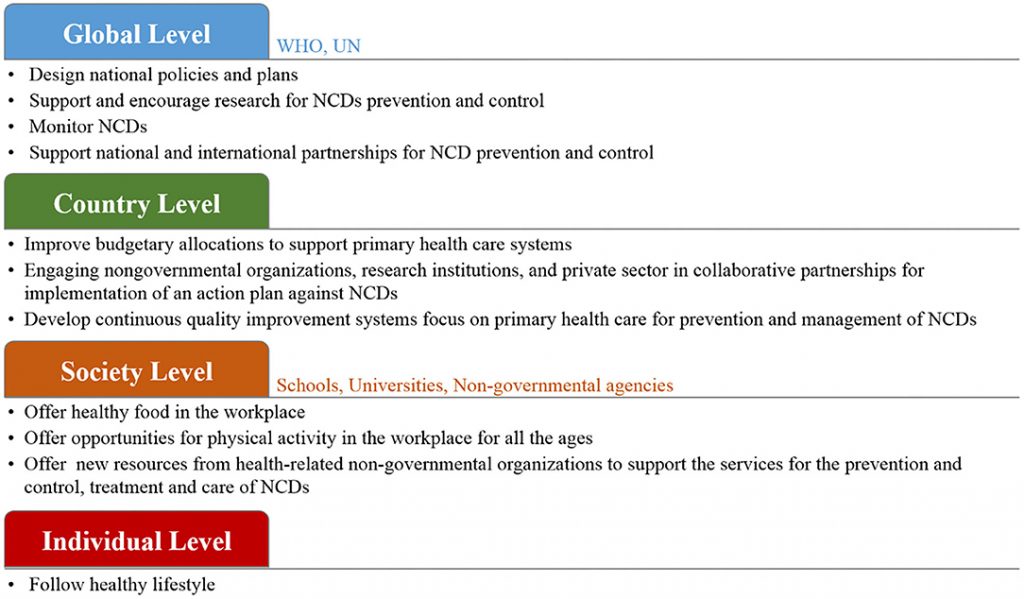An international team of researchers report that the management of cancer, diabetes, cardiovascular and respiratory diseases, the leading causes of death worldwide, requires lifestyle management at the individual level and widespread change in strategic health policies, especially once COVID-19 has subsided.
According to the World Health Organization, non-communicable diseases (NCDs), are the leading cause of death worldwide, responsible for 71% of the total number of deaths each year. The top four killers among NCDs are cardiovascular diseases (17.9 million deaths annually), cancers (9 million), respiratory diseases (3.9 million), and diabetes (1.6 million).
Although lifestyle factors, such as physical activity, nutrition habits, tobacco and alcohol consumption have been linked to the development of certain medical conditions, in this study, the researchers attempt to draw the attention of policy-makers and medical professionals towards the complex nature of the problem and its possible solutions.
The researchers also note that the effects of the global COVID-19 pandemic on the development of NCD’s have proven devastating because during lockdown people tend to eat more and exercise less. “In the future, when the battle with COVID-19 is won, the health system may be overwhelmed with the many occurrences of NCDs,” they write.

“It is important to combine modern scientific achievements and innovative decisions, concerning the rationality of nutrition and positive effects on human health. Governments and international organizations should make people aware of their health and their environment to make the world a safe and healthy place”, states Dr Rimantas Kodzius, Head of the research group behind the study, Professor at Panevezys Faculty of Technology and Business, Kaunas Technology University (KTU), in Lithuania.
The scientists claim that in order to successfully address the growing crisis of non-communicable diseases, innovation which focuses on the promotion of healthy eating behavior, lifestyle change and cessation of smoking is crucial.
“In the past, infectious and parasitic diseases were the main causes of death, but in recent decades, NCDs have replaced them. Moreover, with the spreading of western lifestyle in low and middle-income countries, due to global population ageing and commercial pressures for unhealthy diets, non-commutable diseases are becoming prevalent across all economic contexts”, says Dr Aida Budreviciute, the first author of the study.
The management of NCD’s requires many strategies from several perspectives. There are modifiable (i.e. high blood pressure, smoking, physical inactivity, obesity) and non-modifiable (such as age, gender, genetic factors) risk factors that contribute to the development of NCD’s. However, although one cannot change their age or gender, there are modifying factors in the cultural or social environment of every person. Therefore, risk factor management is essential in preventing NCDs’.
The researchers suggest classifying risk into modifiable or non-modifiable factors.

Solutions

Conclusion/ “The researchers foresee that the best prevention management strategy will include individual (lifestyle management), societal (awareness management), national (health policy decisions), and global (health strategy) elements, with target actions, such as multi-sectoral partnership, knowledge and information management, and innovations. The most effective preventative strategy is the one that leads to changes in lifestyle with respect to diet, physical activities, cessation of smoking, and the control of metabolic disorders.”





